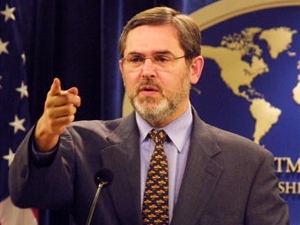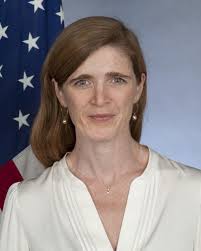UNITED STATES’ ATTEMPT TO ESTABLISH A FEDERAL STRUCTURE IN SRI LANKA.
Daya Gamage worked at the American Embassy in Colombo, as the Sole Foreign Service National and as a Political Specialist with Dr Robert Boggs, who served as Professor of South Asian Studies at Near East South Asia Centre for Strategic Studies at the US National Defence University, from 1989 to 1993. Dr Boggs was the Foreign Service Political Counsellor while Daya Gamage was the Foreign Service National Political Specialist. Both of them were the Colombo US Diplomatic Mission’s key persons who closely monitored the Southern (JVP-88-89) insurrection and the North’s LTTE separatist-terrorist movement for the U.S. State Department. Daya Gamage retired in 1994 and has been living in Las Vegas ever since. Sharing his knowledge, understanding and his intimate professional relationship with the US Department of State, he has come out in the form of a book titled:’Tamil Tigers’ Debt to America.’ He assures that facts found in his book cannot be found anywhere else! Daya Gamage authorised the writer to ” to quote anything from his book” in order that the readers may get a clear picture of America’s Foreign Policy, Sri Lanka’s National issues and the LTTE struggle in depth. His book is available at Amazon
Series 21
EXTRACTS FROM ‘TAMIL TIGERS’ DEBT TO AMERICA’.
Since the inception of the LTTE hostility in March 1980, Foreign Service Officers of the US Embassy in Colombo, Sri Lanka, had been conditioned to have a ‘settled mindset’ about the national issue of Sri Lanka. Various elements and aspects of this already established mentality were revealed on many occasions. These perceptions of Sri Lanka’s national issue reached the South Asia Bureau of the US State Department over the years to influence those who were at the helm, who had the privilege of testifying before the Senate Foreign Affairs Committee and the House International Relations Committee. A newcomer to South Asian portfolio, Richard Boucher went through all these perceptions that have been fed periodically by the American Embassy in Sri Lanka, half-truths, distortions, and analysis to settle a point that the panacea to all ills was the establishment of a Federal Structure, which the majority Sinhalese interpreted as a stepping stone to a separate Independent Tamil State. The “disclosure” by Richard Boucher in 2006 was the result of the developed conviction within the US Diplomatic Mission in Colombo, which was largely instrumental in promoting the current endeavours of the Tamil Diaspora towards the Delegitimisation of the Sri Lanka State.
Richard Boucher.

Atul Keshap becoming a Catalyst
The new US Ambassador to Sri Lanka, Atul Keshap, has gone on record as saying that the United States supports a federal structure as a catalyst for national reconciliation among the Sinhalese majority and Tamil minority. When Atul Keshap was the Deputy Assistant Secretary in the State Department’s South Asian Bureau, he made the authoritative declaration that Sri Lanka needed a federal structure to redress minority Tamil grievances. Previously, he was working very closely on Sri Lankan issues with Robert Blake when the latter was the Assistant Secretary of the South Asian Bureau. Atul Keshap has been to Sri Lanka on two occasions, once in June 2014 and also in February 2015.
Ignoring the Sinhalese sentiments of establishing a federal stricture on Sri Lanka is a stepping stone for separatism. Atul Keshap made the pronouncement when he accompanied the Assistant Secretary for South and Central Asia Nisha Biswal on an official tour in June 2014 at a media interview in Colombo. If officials in the US State Department make policy statements to the effect of what another nation should undertake, they reflect Washington’s policy decisions taken at some high level in the American government.
When Atul Keshap declared, not once but on several occasions in the same interview with a Sri Lankan newspaper- The Daily Mirror– about the vitality of establishing a federal structure in Sri Lanka he was obviously pronouncing a policy plank of the US Government already consolidated at some high level. During this interview on 20th June 2014, Atul Keshap told what the United States believed: (http://srilanka.usembassy.gov/tr-20June14.html).
Atul Keshap’s Daily Mirror interview
“ The U.S. believes in a very bright future for this country (Sri Lanka) and it believes that Sri Lanka has the potential in terms of human capital, in terms of resources, in terms of geographic location, in terms of having secured peace after a very brutal civil war; a country connected to the entire world. A country that is not the subject of UN Human Rights Council Resolutions because it has perfected its democracy and perfected its respect for human rights. A country that has created a meaningful formula for devolution of power and federalism to ensure coherence among various regions. A country that is reconciled, peaceful and prosperous”. Lamenting about the long delay in bringing changes, Atul Keshap said, “it’s been five years since the war ended and I haven’t seen any meaningful discussion or movement along the lines of a meaningful negotiation of the very tricky political issues related to Federalism.”
He reiterated in another place in this interview, “ We care about meaningful devolution of powers to ensure that a true federal compact can be forged to really cement the peace and put the country on a good track. He was talking about the success of America’s diversity: “ Our view in America is that our diversity givens us our strength. And that the very dazzling diversity of the American people is something to be cherished and appreciated. Diversity is our strength and equality is our strength and it makes our country more coherent, it makes it stronger, it makes it more stable, and I believe it makes it more prosperous.” This Daily Mirror interview was carried in full on the American embassy website, giving tacit approval to every sentiment Atul Keshap expressed, including the importance of a federal structure in Sri Lanka.
Samantha Power’s declaration on Feral Constitution to Sri Lanka Press.

US Permanent Representative for the United Nations, Obama Administration’s top foreign-policy advocate Samantha Power, visited Sri Lanka on November ( 21-23) in 2015, as her second visit, the previous one being in June 2010, during the Mahinda Rajapaksa administration. Her latter visit was significant as she had been a direct participant of the UN’s Department of Political Affairs, which initiated “ Promotion of Federalism” in the Third World Nations on ethnic lines. Samantha Power’s 2nd visit was even further interesting since Colombo had an American diplomatic envoy Atul Keshap, who was a strong believer in a federal structure in Sri Lanka. It became more interesting because the Sirisena-Wickremesinghe administration on 17th November 2015, made an official announcement with Cabinet approval that the Executive Presidential System in Sri Lanka would end with Sirisena’s completion of his term and that in 2016 the Sri Lanka legislature would transform into a “ Constitutional Assembly” to draft a new foundation for the country. The professional operatives of the Tamil diaspora, in their dialogues with the Officials of the State Department and the Obama White House, had been advocating that the best solution to redress Tamil grievances was a Constitutional arrangement devolving administrative and development power to the Tamil homeland
Having fulfilled her desire (Samantha Power) as first, the Obama White House’s human-rights and genocide czar, then as US Ambassador to the United Nations and retaining her influence over the White House Foreign- Policy Initiatives to take Sri Lanka to the UNHRC, Geneva, on the issues of accountability and transparency. Dr Power, since 2012 was instrumental in getting the UN Department of Political Affairs (DPA) to come out with a plan to restructure several developing Third World nations’ constitutional arrangements to impose federalism as an answer to ethnic minority grievances, similar to the United States began in Nepal as a test case.
The DPA has been under the effective control of the State Department for decades. The Under-secretary-general (Political Affairs), the second most senior office holder next to the Secretary-General, who served the State Department for more than two decades. In this context, the visit of Power in late November 2015 to Sri Lanka was so crucial to the existence of Sri Lanka as a united nation.
The UN, since 2012 has been holding a number of closed-door meetings and seminars at which the partition of UN member states has been discussed. Most of the meetings have been held under the direction of the UN Interagency Framework for Coordination on Preventative Action ( the Framework Team or FT). The FT is directly under the control of the Under-Secretary-General of Political Affairs. The process commenced during B.Lynn Pascoe, the Under-Secretary-General (Political), another retiree from the US Department. The holder of this position advises the UN Secretary-General on peace and security issues globally while overseeing “ good offices” initiatives and field-based political missions carrying out peacekeeping, preventative diplomacy, and peacebuilding activities

When the process commenced in 2012, Sri Lanka, apart from Nepal, was also a target for the identity of Federalism engineers. During the 2008 US Presidential campaign, both Hilary Clinton and Barak Obama received large campaign donations from Front groups for the Tamil Tigers. As a way of thanking the Tigers for their support, Obama Administration and the International Peace Institute of Norway (which was known as a front for NATO, and the CIA, supported the LTTE during their long terrorist war against the Sri Lankan government) They were pushing for a Federal system in Sri Lanka that would create a Sinhalese, Tamil, and Muslim Federation.

It is with this scenario the federal structure in many Third World small nations on ethnic lines that the US State Department officials tried to declare “ the best political solution to Sri Lanka’s issues. ” It was a serious suggestion on devolution of power facilitating a federal structure.
Sri Lanka’s Foreign Minister Mangala Samaraweera addressing an invitee-only gathering of Sri Lanka’s expatriates in Los Angeles on 25th September 2016, at the residence of Consular General, Swarna Gooneratne, assured that Sri Lanka would remain territorially an undivided country while keeping the doors open on federalism. He was responding to a query from Sri Lanka Express editor in chief Hasina Leelaratne as to “whether the Government of Sri Lanka would “continue to uphold a unitary constitutional and avoid federalism.”
This was an incident how the State Department had influenced the Sirisena-Wickremesinghe Administration to seriously consider promulgating a federal constitution for Sri Lanka.
Pic. credit: Wikipedia; like success.com & Google
Courtesy: Daya Gamage: “ Tamil Tigers’ Debt to America”
To be continued.






